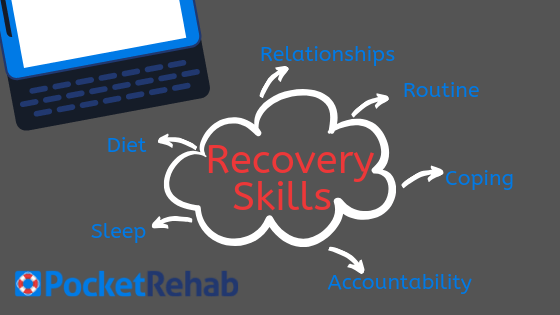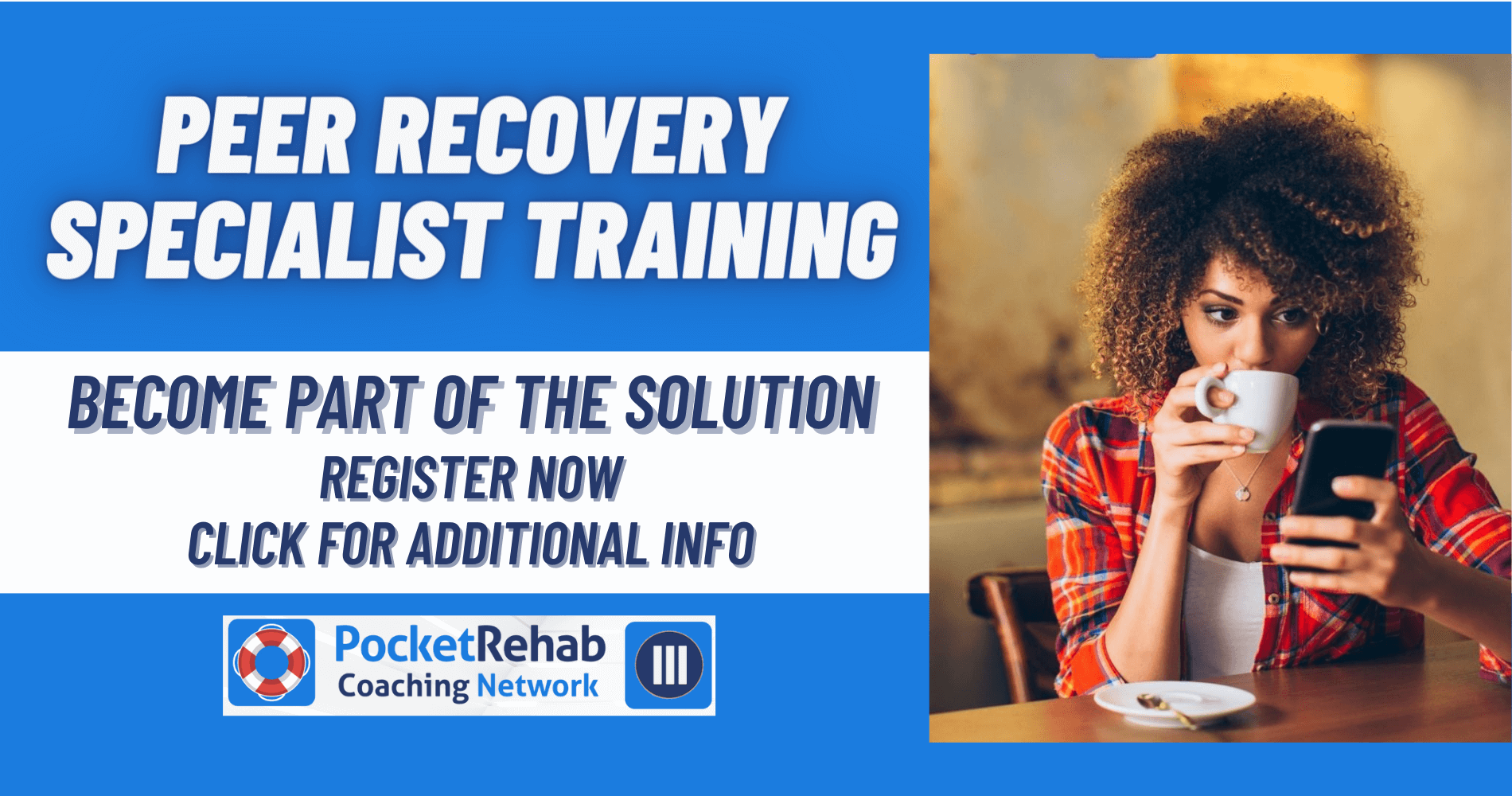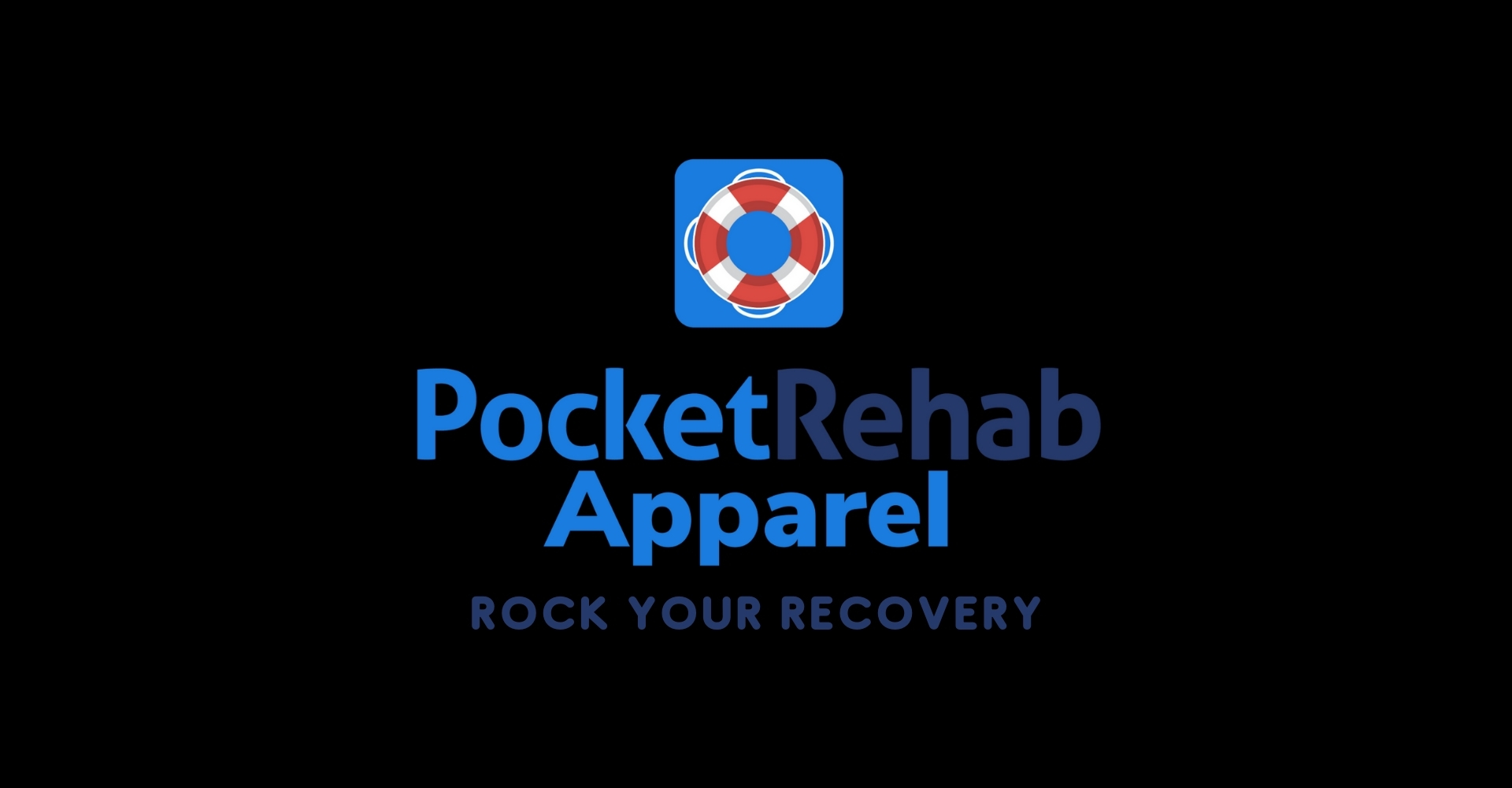Recovery Skills: 16 Skills you Need in Recovery and How to Develop Them

Recovering from addiction to drugs or alcohol takes time, commitment, effort, and self-love. You won’t recover overnight, but you likely will begin to notice that you are healing with each day. Staying sober long-term will require substantial life change. Working on your recovery skills ensures that you have the tools necessary for any situation along the way…
1. HALT
Many treatment centers recommend HALT as a means of embracing recovery and avoiding relapse. HALT stands for Hungry, Angry, Lonely, Tired. Basically, HALT states that many addicts relapse at the end of the day when they are hungry, angry, lonely and tired. To avoid relapse as a result of any of these scenarios, learn how to recognize those feelings and HALT—STOP what you are doing, take care of yourself, and do NOT think that drugs or alcohol will make you feel better!
2. Routine
Eating, sleeping, exercising, and relaxing should all be a part of your healthy routine. In recovery, a routine is what prevents you from having too much time on your hands. Often, when we have too much time, we resort to drugs or alcohol to “fill” that time. Develop a daily routine by mapping out your day in a journal or planner, sticking to your plan, and avoiding situations or events that are not part of the plan.
3. Self-Care
Using drugs or alcohol is a sure sign that you are NOT taking care of yourself. Now that you’re in recovery, self-care is a skill that you may need to work on. Basic self-care, such as showering and changing your clothes are only the first steps. As you grow in recovery, your self-care routine may include things like getting your hair done, having your nails done, or daily exercise.
4. Accountability
We lose our desire to be held accountable for our actions when we use drugs or alcohol. But accountability is a major skill that you must have in recovery. Not only must YOU be accountable for yourself and your own behaviors, but you should also be there to hold others accountable in their recovery too. This is part of how you build a support system with those in recovery just like you. Check in at Pocket Rehab and, check on others in recovery too!
5. Financial Stability
When you’re using drugs or alcohol you probably don’t care too much about your finances. In fact, you probably spent all your extra money on your substance of choice and you may have even spent bill or grocery money there too. Now that you’re working on sobriety, money management is an important skill to learn. Your money management skills will likely improve over time. Begin by making a budget and sticking to it. Seek additional advice through a non-profit financial counselor to help you continue to budget and save.
6. Healthy Diet
Eating a healthy diet consisting of fruits, vegetables and lean proteins is vital to your recovery success and to your general health. Without good nutrition, your body is not equipped to fight off disease and sickness. In recovery, consider learning new ways to cook foods that you love or incorporating healthy substitutes for your unhealthy choice. Check with your local health and social services department for information on local farmer’s markets where you can purchase healthy foods.
7. Relaxation
Substance abuse is almost certainly triggered by stress. Those in recovery need to learn how to cope with stress in a positive manner. Learning to relax is a vital skill for recovery and for life in general. Consider yoga, meditation, reading, or a walk to help you relax, Certain foods can also help as can essential oils. Studies show that relaxation reduces the use of alcohol, tobacco and marijuana—and it could be helpful for other types of substance abuse too.
8. Coping
Recovery is often derailed by relapse—but you can learn coping skills to help you avoid relapse. Relaxing and managing stress are important coping skills. Additional coping mechanisms may include behavioral changes, thought process changes and just generally learning how to recognize triggers so that you can avoid them or effectively manage them.
9. Honesty
Much like accountability, honesty is an important skill in recovery. Being honest with yourself and with others will reduce stress and can help to prevent relapse. Addicts spend so much time being dishonest with themselves and others. It will likely take some time to figure out WHO you really are and to be truly honest with yourself—but keep working on it. You’ll get there! Consider an accountability partner to help you work on being honest—don’t give your addiction any room to hide in the shadows! Tell the world about your recovery so that the WORLD can be on your side.
10. Goal Setting
Learning how to set realistic, attainable goals is an important skill. Doing so in recovery will help you not only to remain on the targeted path but also to feel good about your wins along the way. When setting goals, be sure they are Specific, Measurable, Attainable, Relevant and Time-Bound. Goals should be clear, they should have a measurable amount or date, they should be something you CAN achieve, they should be relevant to your overall plan, and they should be time-bound which means they have a specified timeframe for completion.
11. Time Management
Too much free time in recovery is dangerous. Manage your time wisely but try not to put so much on your schedule that you become overwhelmed. Sounds rather complicated right? Don’t have too much free time, but don’t have too much scheduled time either? CONFUSING. But it doesn’t have to be that confusing! Do your best to manage your time efficiently. Use a planner, write down the important events and timeframes, and then always plan in some relaxation time to ensure you don’t overdo it.
12. Gainful Employment
Earing a paycheck each week is an important part of your recovery. This is a big step, especially if you’ve lost your job as a result of addiction. If you need help finding a job, consider speaking with a career counselor through your local department of children and families or community support program. If you don’t have the skills necessary to find gainful employment, consider going back to school to gain those skills.
13. SLEEP
Sleep is a vital element in recovery and in life. While there’s not really much “skill” to sleep, there is a skill to the routine that may be responsible for how well you sleep. Establishing a sleep routine can help you to feel better, less stressed and ready to conquer each day. Your sleep routine should consist of a period of time set aside to relax and wind down (Put away the tablet or phone!). Take a bath or drink some chamomile or lavender tea. Turn the lights down and avoid activities that keep the brain awake (such as reading, watching tv or exercising) 30 minutes before bed.
14. Communication
Communicating with others is an essential recovery skill but also an essential skill in everyday life. It’s important to say what you mean and mean what you say. Be clear and concise when communicating with others so that your words cannot be misunderstood or misconstrued. Be honest, and keep the communication channel open for others to respond or participate in. Think before you speak. Listen carefully to others before you respond. Be assertive but affectionate too.
15. Relationships
The relationships you have with others in recovery can sustain or derail your efforts. If you’re new to recovery, you may have to find new friends and begin new relationships in order to have healthy bonds. Learning the skills necessary to have healthy relationships can take time and continued effort, but you will get there! Begin with like-minded people in recovery groups such as AA/NA and find yourself an accountability partner. Build strong relationships with others in your community through apps like Pocket Rehab that connect you with like-minded, recovering individuals.
16. Declutter
Learning how to declutter your home, your environment and your life, in general, will help you to stay sober. Begin by cleaning your living space. A cluttered home is a stressful environment. Plus, if you haven’t cleaned house since you decided to begin your healing journey, there’s a likely chance you have triggers in the home that could derail your recovery. Clean house! Decluttering your life and your schedule can further reduce stress—further improving your recovery chances. You’ll find tips for cleaning your living space online, but a good place to begin is in decluttering and getting rid of things you do not use.
As you grow in recovery you will gradually find that you are gaining all of these life skills and more along the way. Remember, each of these skills will help you not ONLY in recovery but in life too!
Help is available, and we're here to support you and/or your loved ones get on the right path and get free from the burden of active addiction. Download Pocket Rehab today for free and get access to the 24/7 resource for people struggling with addiction and mental health.
Learn more here.
Tags: recovery skills, recovery, addiction recovery, accountability, relationships, triggers, coping, support, recovery apps





